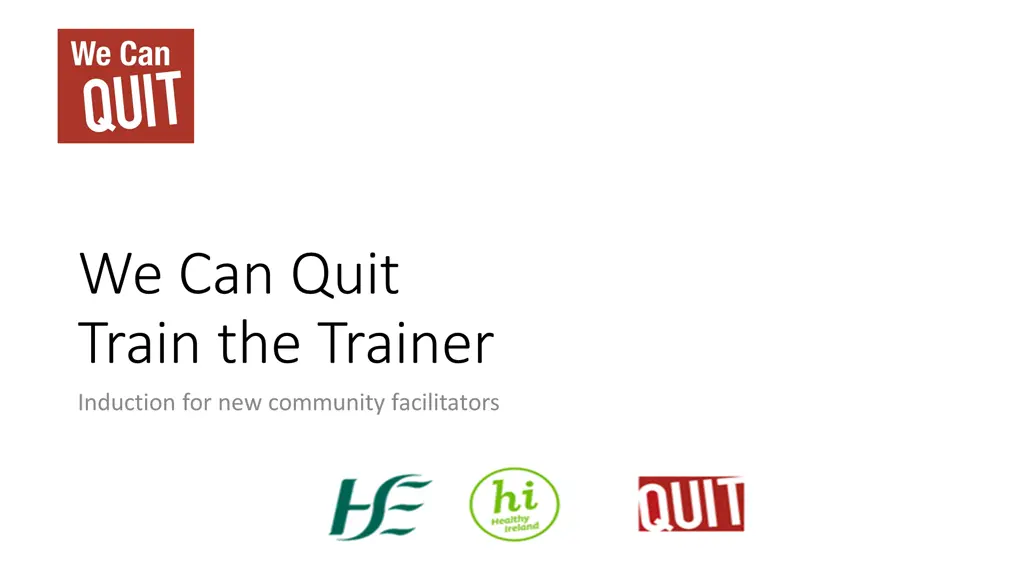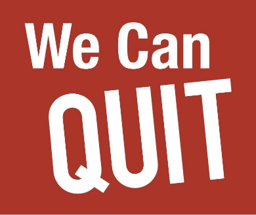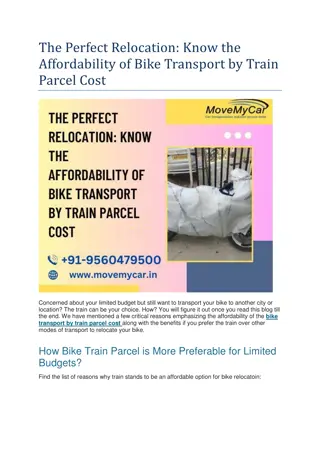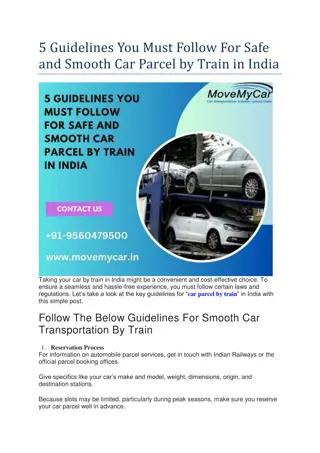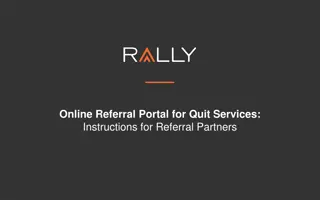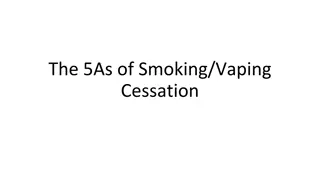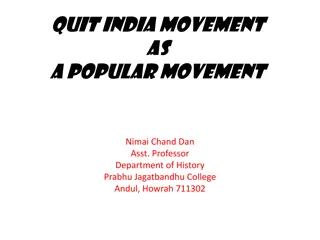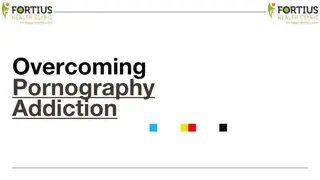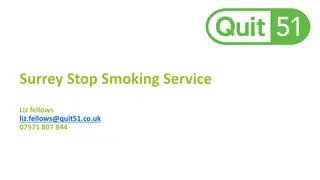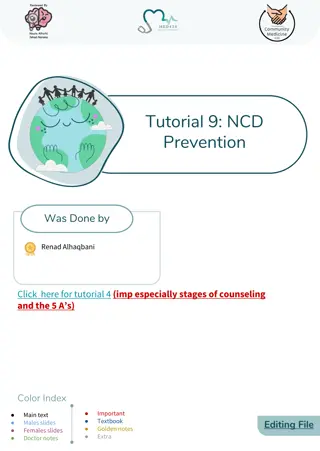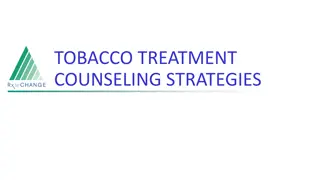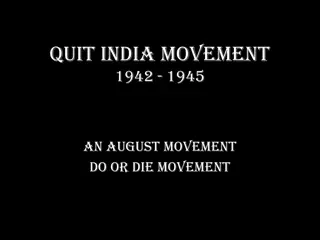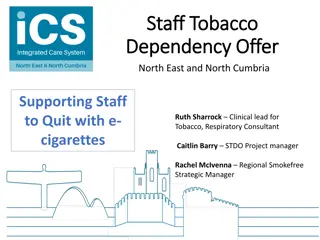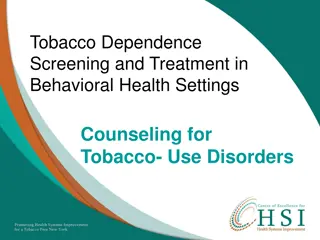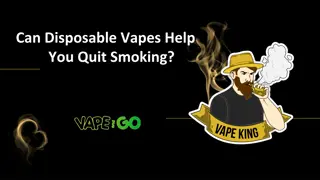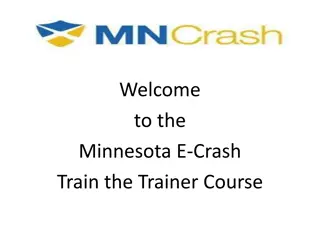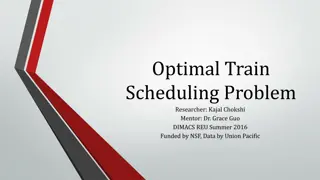We Can Quit Train the Trainer
Gain knowledge, skills, and techniques to lead a stop-smoking program. Learn behavioral support, gender-specific issues, health risks of tobacco, and motivational support. Explore program components and tools for client progress monitoring.
Download Presentation

Please find below an Image/Link to download the presentation.
The content on the website is provided AS IS for your information and personal use only. It may not be sold, licensed, or shared on other websites without obtaining consent from the author. Download presentation by click this link. If you encounter any issues during the download, it is possible that the publisher has removed the file from their server.
E N D
Presentation Transcript
We Can Quit Train the Trainer Induction for new community facilitators
Aims of Induction 1. To provide you with an brief overview of the We Can Quit programme and the role of the community facilitator in delivering the programme 2. To outline the training requirements
Aim of We Can Quit, Train the Trainer Aim of We Can Quit, Train the Trainer To provide you with the: knowledge, information and skills to deliver a community and peer led week stop smoking programme to men and/or women who want to quit smoking.
What is covered in the WCQ training Behavioural support techniques for stop smoking Core components of the WCQ programme The link between gender and smoking Social Determinants of Health Skills in Brief Intervention The health risks of tobacco use The benefits of quitting and barriers to quitting.
At the end of the training you will Know how to deliver the WCQ programme Know how to apply behavioural support techniques for stop smoking to people who want support to quit smoking Be able to describe the medications used to support people to quit smoking Be able to use the CO monitor and explain how this can support men and women on their quit smoking journey Know gender specific issues to health Social Determinants of Health Describe the health risks of tobacco use, the benefits of quitting and the barriers and facilitators to quitting Know how to provide one to one motivational support Know how to monitor client progress
What is We Can Quit? Community stop smoking programme for men/women Delivered over 7, 10 or 12 weeks Peer led and facilitated by community facilitators Meets the Quality assurance standards for the delivery of stop smoking services
We Can Quit - Why? Smoking is the leading cause of preventable death in Ireland Smoking causes 90% of all lung cancers Smoking is a health inequalities issue First delivered in 2013 to tackle health inequalities and to help address the issue of the high smoking prevalence among women living in disadvantaged communities in Ireland In 2021, 1stmen only programme piloted
What participants have said about WCQ The Very facilitators were great informative Loved the programme It was great to be part of a group of ladies sharing their stories. It was inspiring and we all tried to help each other I made new friends I would not have quit without the support Great tips
Partnership approach to delivery County Councils Local Area Partnerships Family Resource Centres Community Centres Local Pharmacies HSE Health Promotion and Improvement
Core Components of WCQ Group support Core components Free stop smoking medication One-to-one support
Role of the WCQ Community Facilitator I think you should speak to Here is the number for
Responsibilities of the WCQ Community Facilitator Help with recruitment of participants Plan and deliver the 7/10/12 week WCQ programme Provide support to and build confidence of participants during the sessions and on a one to one basis Manage group dynamics Report on the progress of the group and any issues arising to your local coordinator Manage and record client data using QUITManager See pages 10 and 11 of the Facilitator s Pack
Skills and attributes of the WCQ Community Facilitator? Skills Communication Listening Knowledge Managing conflict Reflective practice Evaluation skills Organisational skills Attributes Empathy Patience Self-awareness Non-judgemental Sense of humour
Time commitment - course delivery Recruitment, information sessions and registration, 6 - 10 hours prior to the programme Programme delivery 3 hours per week (group and one-to-one) Planning, preparation and reporting up to 3 hours per week Post programme up to 6 hours for evaluations and debriefing Attend training as appropriate/required
WCQ Training for Trainers Outline Topic Length of time Method of assessment Online MECC 3 to 6 hours Completion of MECC Online NCSCT 6 to 8 hours Completion of assessment WCQ information session NCSCT Level 3 3 hours Participation in session 2 days Peer assessment QuitManager 1.5 to 2 hours Online Facilitation Skills * 12 hours Facilitations skills practise *This element is optional for those with no prior facilitation skills training or experience
On completion of training Once you have completed the pre-training, you must co-facilitate your first two courses with an experienced facilitator or HSE stop smoking advisor.
Make Every Contact Count - MECC www.hseland.ie
National Centre for Smoking Cessation and Training Practitioner Training - online Speciality courses in mental health and smoking , and pregnancy and smoking Skills to practice - Two day face-to-face training
NCSCT access and registration Access: www.ncsct.co.uk/ireland Passcode: IRL2020
QuitManager training E-Learning module www.hseland.ie
Thank you! Questions?
Chose Specialist/ Practitioner Role
Chose Tobacco Cessation Specialist
Chose Voluntary Organisation
Chose Health and Wellbeing Directorate
Chose Voluntary organisation
